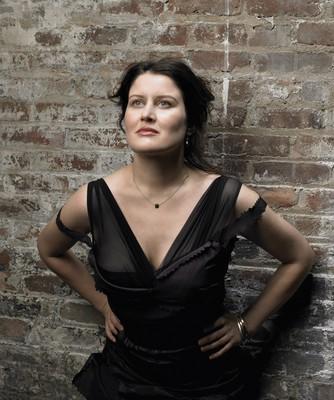Singer Cole didn’t want to wait for her pop career to be over

In her seven years away from the music industry, Paula Cole has gone from having a teen anthem on The WB to a jazz standard on PBS.
The singer’s shows today through Sunday in the new showroom at the South Point will find the middle ground in “Courage.” The new album released last week puts the singer comfortably between her signature hit “I Don’t Want to Wait,” which was used as the theme to “Dawson’s Creek,” and the standards she sang with jazz trumpeter Chris Botti on two of his albums.
Botti’s concert special became a staple of PBS pledge drives last year. Cole’s rendition of “My One and Only Love” reintroduced the singer, who had become disillusioned enough to take herself out of the music business.
“I was tired of living in the third person: ‘Paula Cole,’ ” the 39-year-old explains. “It was feeling inauthentic to me, like some old skin to be shed. I wanted to inhabit other aspects of myself. I’m not just all music, and yet that’s all my life was. I was always on tour. I didn’t have community or support around me.”
Even the touring wasn’t so great. “I realize now my career was very mismanaged. Even with two big hit songs and a Grammy (for best new artist in 1997), the money didn’t change and the venues were hideous. I was just being run around like a field horse instead of being the racehorse I was musically.”
The singer was distracted by her daughter Sky’s battle with asthma, and Warner Bros. Records shelved the results of recording sessions with respected producers Hugh Padgham and Don Was. “It just wasn’t meant to be,” she says. “It was like the universe was saying no.”
Cole studied Kundalini yoga and thought about enrolling in a master’s degree program. “I was in the prime of my life, and I felt devalued. I decided, ‘I can apply my smart brain to other things. I need to make a living for my child, I need to go back to work.’ “
But in her heart of hearts, the Berklee College of Music graduate knew that wasn’t what she really wanted. She knew she had “a gift of sorts,” and “if I turned my back on that it would be foolish.”
Rescue came in the form of Bobby Colomby, the producer who recruited her for the two Botti albums and one by singer Gary LeMel, eventually taking the helm for “Courage.”
“He really kind of saved me, actually,” she says. The standards were recorded in the historic Capitol Records studios in Hollywood, “where live music was made by wonderful musicians. We made it in that very live spirit. … It put fun back into music again, and it was quick. It wasn’t overly precious like building pop records can be — three days for a snare sound and all that crap.”
Botti and his pianist, Billy Childs, play on “Courage” as part of a roster of guest stars ranging from Herbie Hancock to David Foster. Cole teamed with different songwriting partners to deliver an album that runs a sophisticated range from sensual techno rhythms (“I Wanna Kiss You”) to samba (“Hard to Be Soft”) to modern-day crooner standards (“Lonelytown” and “Until I Met You,” the latter sung with Paul Buchanan of the Blue Nile).
“Now it feels like the universe is saying yes,” she says, “with the right people around me, and the right kind of music that shows more my background and my abilities.”
Cole says that for a long time in her youth, she wanted to be a jazz singer, and she likely will include “My One and Only Love” in this weekend’s shows. “It was kind of funny to me that this whole singing jazz became momentarily popular,” she says of the chart-topping success of Michael Bublé. “Music is changing, so we’re all a little confused and probably finding solace in the old familiar.”
But right now she wouldn’t do a whole album of “singing other people’s lyrics from another time in society. Some (standards) are classic, and they will always go on, but some don’t necessarily reflect how I feel. So I wanted to be more authentic to my own feelings and create original music.
“So I like the blend. I like acknowledging my influences and, yes, I would love to do an album of standards at some point. But mostly I would to make as much meaningful modern music without category.”